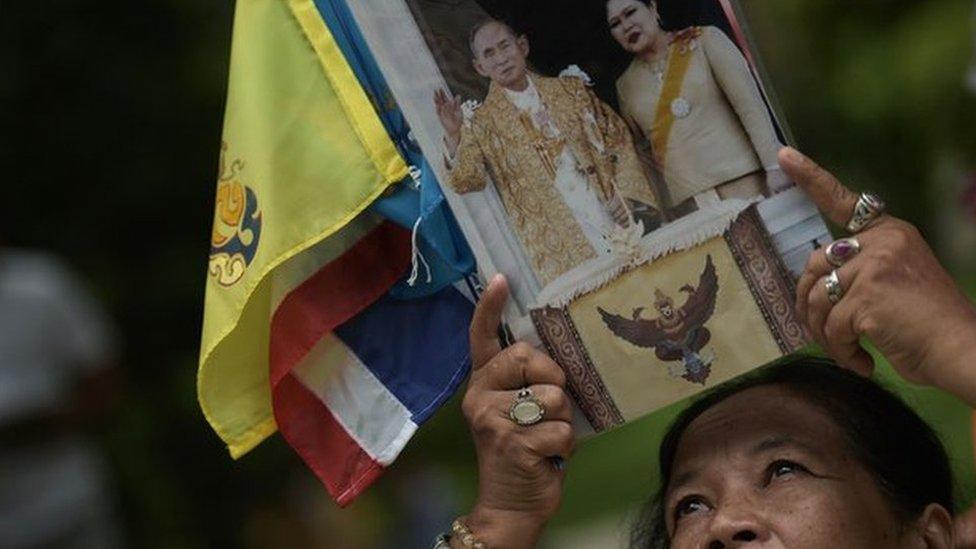Pita Limjaroenrat: Thailand's reformist leader fails to become PM
- Published
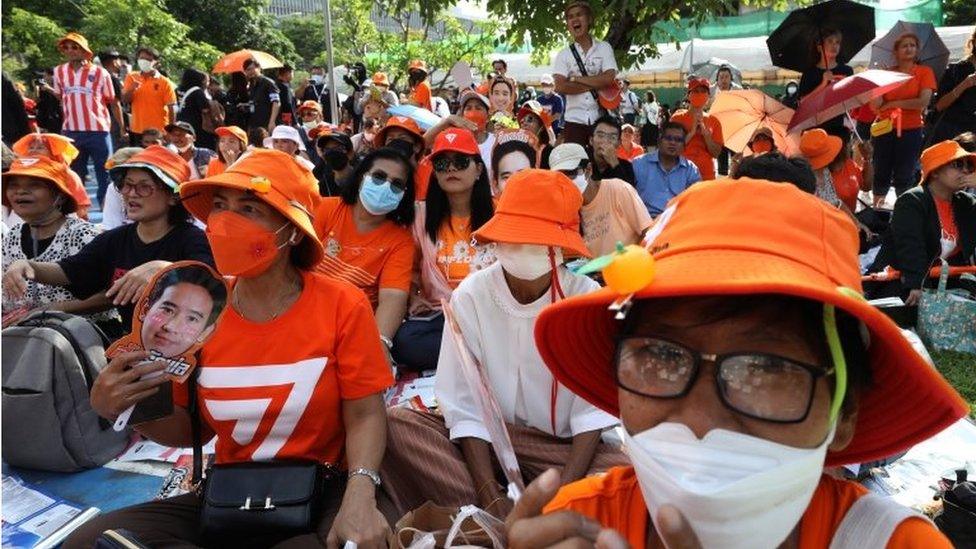
Move Forward supporters listened to the vote outside parliament in Bangkok
The reformer who won Thailand's election has failed to win enough votes in parliament to become prime minister.
Pita Limjaroenrat swept to victory in May as voters rejected nearly a decade of conservative military rule.
He has a lower house majority but could not win over enough unelected senators, all 249 of whom were appointed by a previous military government.
Mr Pita also faces last-minute legal challenges which could yet disqualify him. He denies breaking election rules.
"I accept it but I'm not giving up," he told reporters. "I will not surrender and will use this time to garner more support."
To no one's surprise, all but 13 senators opposed Move Forward, either abstaining or voting against its young leader. There were cheers from the crowd outside parliament every time a vote went in favour of him - groans and jeers when they went against.
In order to win the 42-year-old Harvard graduate and former tech executive needed the votes of more than half of the 749 members in parliament's two chambers, but he only secured 324 votes, 51 short of the required 375.
Under the rules, parliament keeps voting until a PM is elected - another vote is scheduled for next week. But it's not clear how Mr Pita can make up the shortfall.
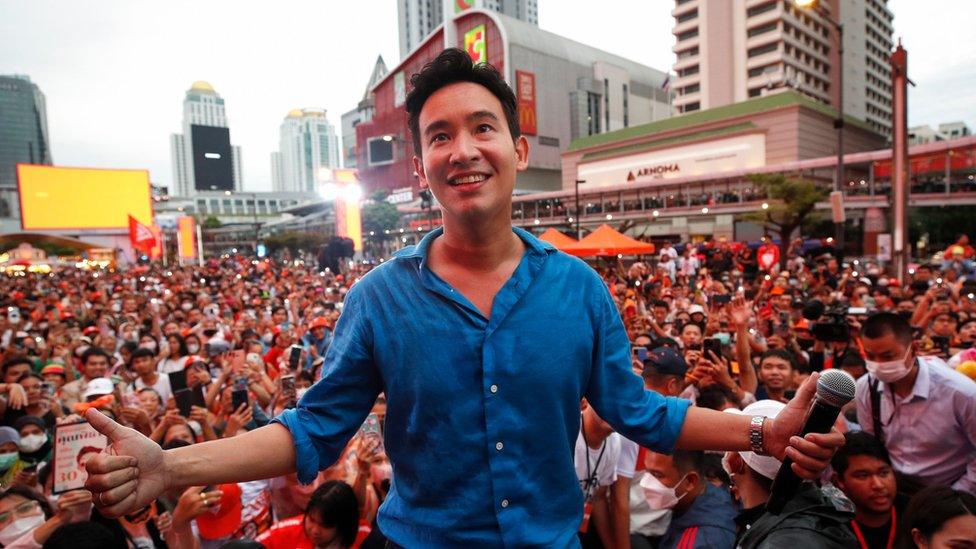
Mr Pita swept to victory as voters rejected nearly a decade of conservative military rule
That raises the risk that the political turmoil seen so often in recent years in Thailand will flare up again - the hopes of millions of Thais for a fresh new beginning for their country appear to have been dashed.
"You have a lot of elements for democracy, but at the very least you need an election. And that election should mean something. Why should I bother coming to vote any more, because my vote doesn't matter any more obviously," one Move Forward supporter said bitterly.
Apart from parliamentary numbers stacked against him, Mr Pita faces other hurdles in the path to power. The notoriously conservative Constitutional Court is now assessing two complaints against him; one that he holds shares in a defunct media company.
The other complaint says Move Forward's proposal to amend the draconian royal defamation laws - which have jailed hundreds of critics of the monarchy - amounts to an attempt to overthrow Thailand's entire political order.
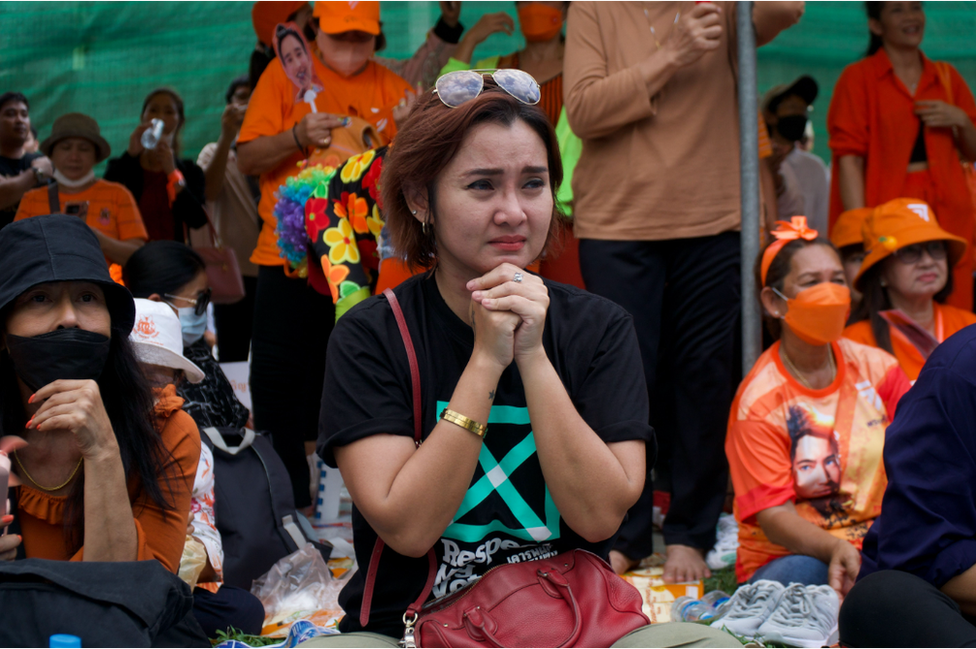
As the votes were cast, hopes were raised but then faded
On Tuesday outgoing Prime Minister Prayuth Chan-ocha announced his retirement. Mr Prayuth was the army chief who carried out the 2014 coup to oust civilian leaders accused of massive corruption. It was Thailand's second military uprising since 2006 and in both instances, a member of the powerful Shinawatra political dynasty was removed from power.
One of the largest blocs in Mr Pita's coalition is led by Paetongtarn Shinawatra, daughter of exiled former prime minister, Thaksin Shinawatra.
The decades-old lese majeste laws, which can land people in jail for speaking against the monarchy, were strictly enforced under Mr Prayuth's leadership and critics said this was used to crush free speech.
During his term, people have been jailed for selling calendars with satirical images of ducks and dressing up like the country's queen.
Mr Pita has described Mr Prayuth's term as Thailand's "lost decade" and has promised to end the country's cycle of corruption and military uprisings. He pledged reforms that would "demilitarise, demonopolise and decentralise" the country.
One of his most contentious campaign promises is to amend the lese majeste laws in a country where the monarchy is officially revered.
Opponents of Move Forward cited its promise to amend the harsh royal defamation law as justification for blocking it in parliament. Royalist MPs accused the reformists of risking violence and even civil war by touching on the issue of the monarchy.
- Published7 May 2023
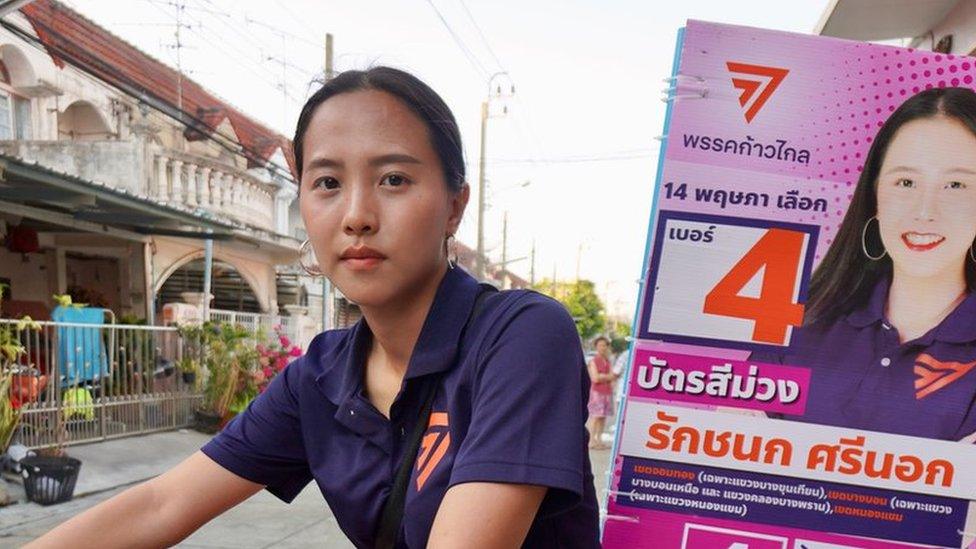
- Published6 October 2017
